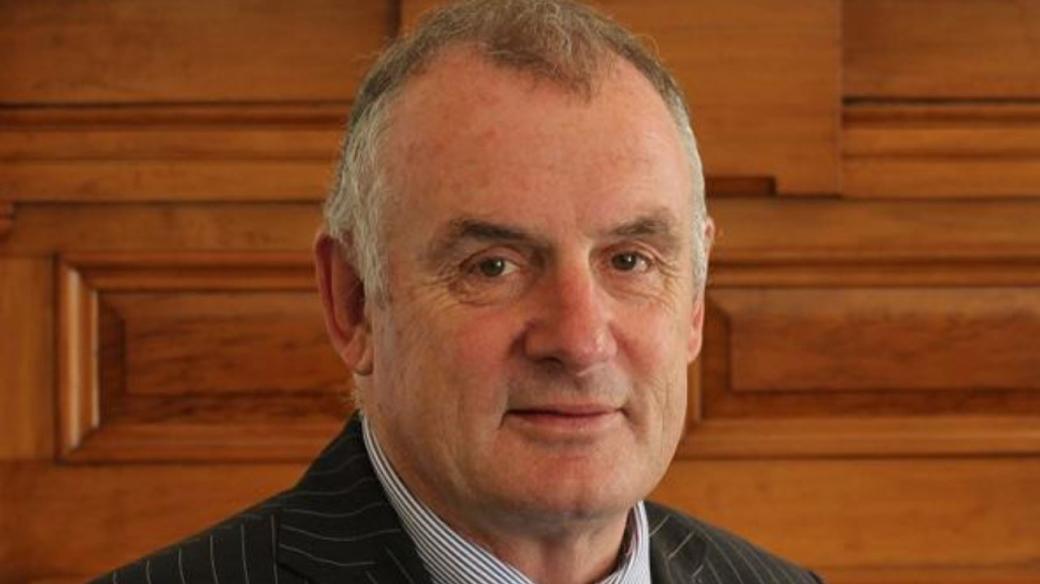

Speaker’s gaffes, Bridges’ valedictory, the polls
ANALYSIS: Trevor Mallard is under pressure again but PM still stands by him.


ANALYSIS: Trevor Mallard is under pressure again but PM still stands by him.
Prime ministers normally only have to worry about gaffe-prone ministers.
But in this term, Prime Minister Jacinda Ardern has spent more time defending Parliament’s Speaker Trevor Mallard than any of her ministers.
It is possible that if he were still a minister, she might have tired of him by now and perhaps put him out to pasture. But as Speaker he has a bit more protection and Ardern has been careful to repeat her confidence in him even as he creates more political problems for her.
Last week, Mallard was under pressure again, this time over a decision to trespass former deputy prime minister Winston Peters and former National Party MP Matt King. Few people know King, but plenty know Peters.
And the trespass order gave Peters plenty of scope to condemn it as an attack on democracy and free speech.
Both former MPs had been trespassed because they had visited the illegal occupation of Parliament grounds. Neither, though, had been involved in the organisation of the occupation or taken part in the occupation itself. In Peters’ case, he spent about an hour walking through the protest, talking to people as he went.
Mallard had already been criticised for his response to the occupation, when he ordered the sprinklers to be turned on and then played loud music, including a Barry Manilow classic, apparently in an attempt to annoy the protesters.
The Speaker’s defence in the case of the trespass orders was that he had delegated authority for that to Parliamentary security. All those who had been arrested during the occupation were trespassed, as were some key individuals, including Peters and King.

Damage was done
In the face of legal threats from Peters, Opposition outrage, and strong advice from Ardern and other senior Labour MPs, Mallard quickly had the trespass notices to Peters, King, and three others withdrawn, but the damage had already been done.
Former minister and Ōhāriu MP Peter Dunne described the trespassing of Peters as “grossly over the top for the expression of political opinion” and said Mallard was not the right person to be Speaker.
Former Speaker Sir David Carter also condemned Mallard’s actions and said he was too entrenched as a Labour MP to run Parliament as a neutral Speaker.
That, though, was bit like the kettle calling the pot black, given Carter faced repeated accusations from Labour when he was Speaker that he favoured his National Party colleagues in the debating chamber.
National has repeatedly expressed its lack of confidence in Mallard and called on Ardern to remove him.
But, as Ardern points out, it is hardly news that an Opposition regards the Speaker as biased.
From National’s perspective, Mallard – whose judgement lets him down from time to time – is an easy political target. It uses its criticism of him to get at Ardern but, so far, she continues to have confidence in Mallard, even as he causes her unnecessary political problems.
One thing Mallard has done has been to introduce a code of conduct for MPs in an effort to clamp down on bullying and sexist behaviour that was highlighted in the Debbie Francis report into the culture of Parliament.

MP bridge crossed by Simon
In his valedictory speech to Parliament, former National Party leader Simon Bridges said he worried too many MPs were sanitising their views and that Mallard’s efforts to turn Parliament into a school library “hadn’t helped”.
Many also find it ironic that Mallard, who was a political brawler before becoming Speaker, is now leading the charge to improve behaviour.
Bridges, who had a tough time as National leader before being dumped, said his wife had added some reality to politics. “She said: ‘Get a grip, get over yourself, your country is smaller than Sydney and no-one knows where it is. Look at all the crazy shit Boris has gotten away with and he’s still PM’.”
Mallard might also take comfort from that advice.
Meanwhile, Bridges also urged MPs to not be driven by focus groups and polls.
But, as always, polls do tend to dominate politics, with the latest Newshub-Reid opinion poll showing support for National rising 9.2 points from the previous poll to 40.5%. Labour was down on 38.2%. Act got 6.4% and the Greens 8.4%.
Te Pāti Māori
Based on those results neither National-Act or Labour-Greens could form a government without the support of Te Pāti Māori, assuming its co-leader Rawiri Waititi holds on to his Waiariki seat.
This poll repeats a trend seen in other recent polls and marks a return to pre-Covid politics. What it points to is that next year’s election is wide open, and the country is unlikely to see a result like the 2020 election.

Emissions reduction plan
Today, Climate Change Minister James Shaw will give an overview of what to expect from the country’s first emissions reduction plan. That should likely give a sense of the costs involved in transitioning to a lower carbon economy.
It will be a challenging time for the government, as households already face high inflation.
How will Labour respond to National’s ongoing campaign on the ‘cost-of-living crisis’?
It has already temporarily cut petrol taxes and road user charges and halved the cost of public transport.
But will it provide more relief for struggling households in next week’s Budget 2022?
At the very least, it will take attention away from Parliament’s gaffe-prone Speaker.
Brent Edwards is NBR’s political editor.
Sign up to get the latest stories and insights delivered to your inbox – free, every day.